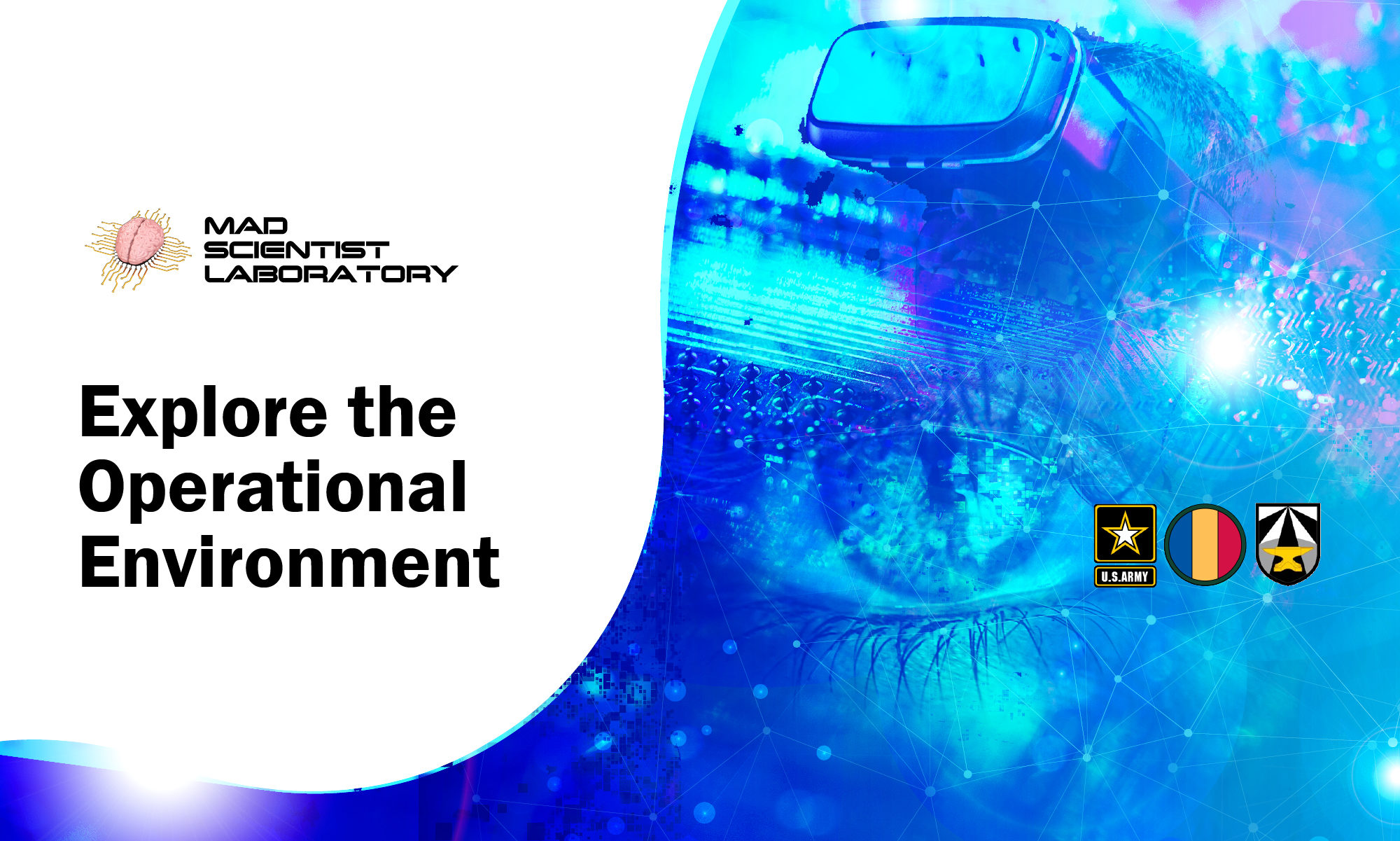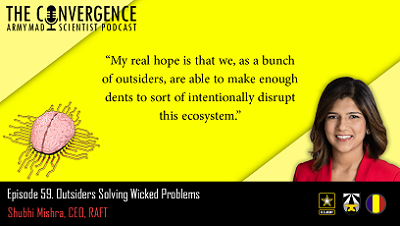[Editor’s Note: Army Mad Scientist is pleased to present our latest episode of The Convergence podcast, featuring Shubhi Mishra, founder and CEO of Raft, a data-intensive digital engineering consultancy, discussing wicked problems in national security; finding creative, mission-focused solutions; and equipping the DoD with sustainable, emerging technology — Enjoy!]
If the podcast dashboard is not rendering correctly for you, please click here to listen to the podcast.]
 While Shubhi Mishra, founder and CEO of Raft, is a lawyer and data scientist by training, she’s better known as an intentional government technology (GovTech) disruptor at heart. She loves solving complex problems, even the kind that give you a headache while you’re working through them. But that process of discovery, of realization, and coming to a solution makes it all worthwhile. Her passion is working with bleeding-edge technology focused on the defense sector.
While Shubhi Mishra, founder and CEO of Raft, is a lawyer and data scientist by training, she’s better known as an intentional government technology (GovTech) disruptor at heart. She loves solving complex problems, even the kind that give you a headache while you’re working through them. But that process of discovery, of realization, and coming to a solution makes it all worthwhile. Her passion is working with bleeding-edge technology focused on the defense sector.  Raft provides an innovation space for people who are similarly mission-focused, tackling vexing challenges with passion and enthusiasm. Ms. Mishra seeks to inspire other women in and out of the GovTech space and excite them enough to join the movement of providing better solutions and services to the defense industry through sustainable, emerging technology.
Raft provides an innovation space for people who are similarly mission-focused, tackling vexing challenges with passion and enthusiasm. Ms. Mishra seeks to inspire other women in and out of the GovTech space and excite them enough to join the movement of providing better solutions and services to the defense industry through sustainable, emerging technology.
In today’s interview, Ms. Mishra discusses wicked problems in national security; finding creative, mission-focused solutions; and equipping the DoD with sustainable, emerging technology. The following bullet points highlight key insights from our interview:
-
-
- Raft’s strategy seeks to build a data fabric, or mesh, on top of data lakes, to reduce silos and increase communication among data resources. This enables faster decision making, which ultimately benefits our warfighters.
-
-
-
- When delivering a data product, it is important to maintain a human-centered design which considers for whom you are building the product. It is critical to experiment with the project and obtain user feedback.
-
-
-
- When working with historical datasets, one must consider: [1] If the full data is present. Can other datasets be integrated to get a better picture? [2] How will we measure the success of the algorithm we are using the data to build? Will we obtain a new result, or are we simply pattern matching? [3] Who can we get comments from to ensure we have a beneficial feedback loop?
-
-
-
- Warfare data presents unique challenges, as [thankfully] there is not high repetition. However, you do not necessarily need high volumes of data to get useful information. Being cautious about what outcome is being measured, using algorithms to pattern match, and enabling different values to be introduced for fair and non-biased outcomes can produce beneficial and informative results.
-
-
-
- The Department of Defense (DoD), working with external partners, helps illuminate fresh perspectives and challenge assumptions, as well as pull new talent. There is an appetite among private sector companies to work with the DoD, but many times companies are not aware of such opportunities.
-

Stay tuned to the Mad Scientist Laboratory for our next episode of The Convergence, to be published in a fortnight on 7 July 2022.
If you enjoyed this post, check out the following related content:
Algorithms of Armageddon and associated podcast, with proclaimed Mad Scientist CAPT (Ret.) George Galdorisi
Going on the Offensive in the Fight for the Future and associated podcast with former Undersecretary of the Navy (and proclaimed Mad Scientist) James F. “Hondo” Geurts and Dr. Zachary S. Davis, and Strategic Latency Unleashed!
Achieving an AI-era Workforce by 2025: A Modern, Scalable Approach to Retooling the United States (and its Army!) by Ted Hallum
The Language of AI and associated podcast with Michael Kanaan
AI Across the Enterprise and associated podcast, with Rob Albritton
Bringing AI to the Joint Force and associated podcast, with Jacqueline Tame, Alka Patel, and Dr. Jane Pinelis
Artificial Intelligence: An Emerging Game-changer
Integrating Artificial Intelligence into Military Operations, by Dr. James Mancillas
Setting the Army for the Future (Parts II and III)
Takeaways Learned about the Future of the AI Battlefield
“Own the Night” and the associated Modern War Institute podcast with proclaimed Mad Scientist Mr. Bob Work



